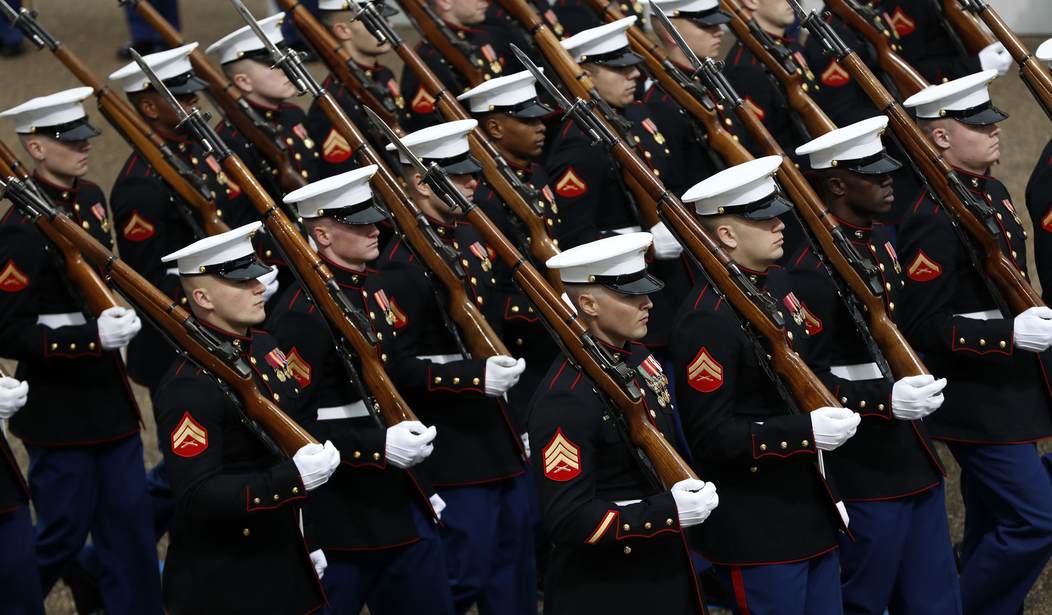In an op-ed for Task & Purpose, Lt. General Gregory Newbold (Ret.) laid out how the ideals of wokeness pushed by the Left do not help the U.S. military's main mission of being a lethal warfighting organization that must be ready at all times to kill the nation's enemies.
Newbold warned how many Americans and senior military leaders have formed a "dementia when it comes to warfare":
"The result is confusion or denial about the essential ingredients of a competent military force, and the costs of major power conflict. The memory loss is largely irrespective of political bent because all too many are seduced by a Hollywood infused sense of antiseptic warfare and push-button solutions, while forgotten are the one million casualties of the Battle of the Somme in World War I, or the almost two million in the Battle of Stalingrad in World War II. This 'warfare dementia' is a dangerous and potentially catastrophic malady, because the price for it could alter the success of the American experiment and most assuredly will be paid in blood."
Instead of pushing for Critical Race Theory in the military, Newbold said the armed forces must get back to the basics of Critical Military Theory:
1. The U.S. military has two main purposes — to deter our enemies from engaging us in warfare, and if that fails, to defeat them in combat. Deterrence is only possible if the opposing force believes it will be defeated. Respect is not good enough; fear and certainty are required.
2. To be true to its purpose, the U.S. military cannot be a mirror image of the society it serves. Values that are admirable in civilian society — sensitivity, individuality, compassion, and tolerance for the less capable — are often antithetical to the traits that deter a potential enemy and win the wars that must be fought: Conformity, discipline, unity.
Direct ground combat, of the type we must be prepared to fight, is only waged competently when actions are instinctive, almost irrationally disciplined, and wholly sacrificial when required. Consensus building, deference, and (frankly) softness have their place in polite society, but nothing about intense ground combat is polite — it is often sub-humanly coarse.
3. There is only one overriding standard for military capability: lethality. Those officeholders who dilute this core truth with civil society’s often appropriate priorities (diversity, gender focus, etc.) undermine the military’s chances of success in combat. Reduced chances for success mean more casualties, which makes defeat more likely. Combat is the harshest meritocracy that exists, and nothing but ruthless adherence to this principle contributes to deterrence and combat effectiveness.
Recommended
Newbold, whose last assignment was director of operations for the Joint Staff, said senior military and political leadership have lost sight of these and other crucial tents of Critical Military Theory by shifting a change in priorities and standards:
"We signal a dangerous shift in priorities (as just one example) when global warming, not preparedness to defeat aggressive global competitors, is considered the greatest problem for the Department of Defense and headquarters and rank inflation blossom out of control to the point that the support element greatly diminishes the ground combat element that wins wars."
Newbold's op-ed is a breath of fresh air as it provides a little bit of hope that not all is lost on the military brass but brought down a little considering he is no longer part of the DoD. One can only pray his words resonate with those who are still in the military and can prevent the inward deterioration.

























Join the conversation as a VIP Member